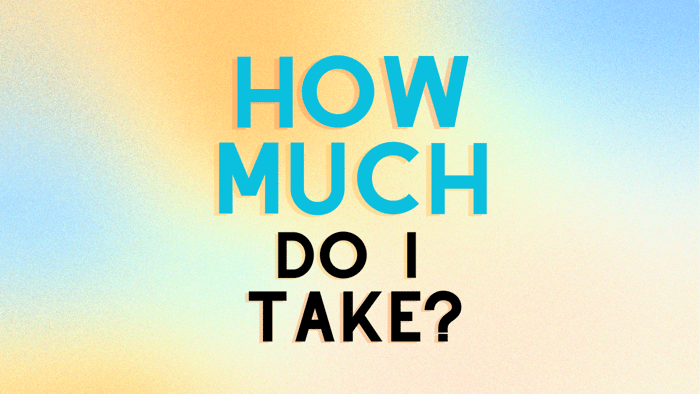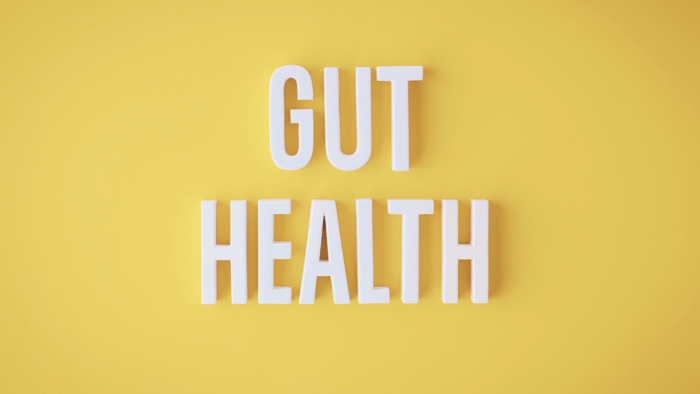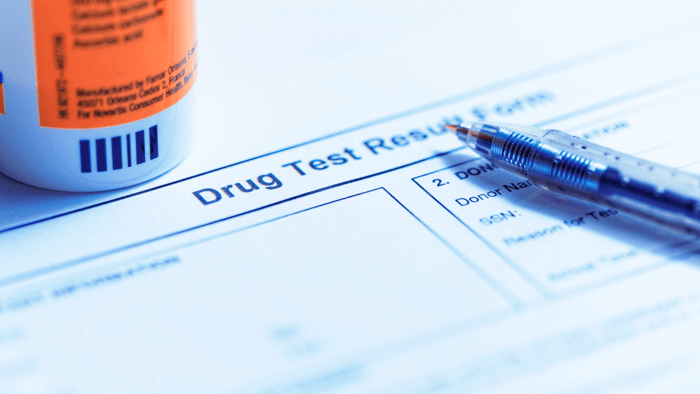In recent years, the surge in popularity of CBD (cannabidiol) products has been nothing short of remarkable. From oils and tinctures to edibles and skincare, CBD has found its way into an array of products, captivating consumers seeking natural remedies for various health and wellness concerns. Amidst this burgeoning market, however, arises a crucial consideration: dosage. As CBD continues to permeate mainstream culture, the importance of finding the right CBD dosage for optimal results cannot be overstated. While the promise of CBD's therapeutic effects is enticing, navigating the realm of dosing can be daunting, fraught with uncertainties and misconceptions.
Understanding CBD dosage is paramount for consumers looking to harness the full potential of these products safely and effectively. Yet, with a myriad of factors influencing dosage requirements, from individual physiology to product potency, finding the perfect dose can feel like a perplexing puzzle.
This guide aims to demystify the intricacies of CBD dosage, offering clarity and guidance to those embarking on their CBD journey. By exploring the factors that shape dosage recommendations, providing practical strategies for dosing, and addressing common misconceptions, we aim to empower readers to navigate the world of CBD with confidence and intentionality. As the landscape of CBD continues to evolve, equipping oneself with the knowledge to find the right dosage becomes not only advantageous but essential in unlocking the full potential of these remarkable products.
What is CBD Dosage?
CBD dosage refers to the amount of cannabidiol (CBD) that an individual consumes as part of their daily regimen or as needed for specific purposes. This dosage can vary depending on factors such as body weight, metabolism, tolerance levels, the severity of the condition being treated, and the form of CBD product being used (e.g., oil, capsules, edibles).
Understanding CBD dosage is essential for consumers for several reasons:
Optimal Efficacy: Taking the right amount of CBD ensures that you experience the desired therapeutic effects. Too little CBD may not provide the intended benefits, while too much could lead to unwanted side effects or diminished efficacy.
Cost-Effectiveness: CBD products can be expensive, and taking more than necessary can result in unnecessary expenditure. By finding the right dosage, you can use CBD more efficiently and economically.
Consistency: Consistency is key when it comes to CBD dosage. Establishing a regular dosing routine based on your individual needs and responses can help maintain steady levels of CBD in the body, optimizing its therapeutic effects over time.
Personalized Treatment: CBD affects individuals differently, and the optimal dosage can vary from person to person. Understanding one's ideal dosage allows for a more personalized approach to CBD use, tailoring treatment to individual preferences and requirements.
Understanding CBD dosage is essential for one to achieve optimal efficacy, ensure safety, maintain consistency, and personalize treatment. By finding the right dosage for your needs, you can harness the potential benefits of CBD products more effectively and responsibly.
Factors Influencing CBD Dosage
Several factors can influence CBD dosage, and understanding these variables is crucial for determining the appropriate amount of CBD for individual needs. Here are some of the key factors that can impact CBD dosage:
Body Weight: Body weight plays a significant role in determining CBD dosage. Generally, individuals with higher body weights may require higher doses of CBD to achieve the same effects as those with lower body weights. This is because larger individuals tend to have a higher volume of distribution for substances like CBD, meaning that the compound may be distributed more widely throughout their bodies.
Metabolism: Metabolism refers to the process by which the body breaks down and eliminates substances like CBD. Individuals with faster metabolisms may metabolize CBD more quickly, requiring higher doses to maintain therapeutic levels in the body. Conversely, individuals with slower metabolisms may require lower doses, as CBD may remain in their systems for longer periods.
Individual Tolerance: Individual tolerance to CBD can vary widely among users. Some individuals may be more sensitive to the effects of CBD and require lower doses to achieve their desired outcomes, while others may require higher doses due to tolerance buildup over time. It's essential for users to start with lower doses and gradually increase as needed while monitoring their response to CBD.
Severity of the Condition Being Treated: The severity of the condition being treated can also influence CBD dosage. For example, individuals with severe chronic pain or anxiety may require higher doses of CBD to experience relief compared to those with milder symptoms. It's important for users to consider the intensity and duration of their symptoms when determining their CBD dosage.
CBD Product Potency: The potency of the CBD product being used is another crucial factor to consider when determining dosage. CBD products come in various strengths and concentrations, ranging from low-potency products to highly concentrated extracts. Higher-potency products may require smaller doses to achieve the same effects as lower-potency options. Users should carefully read product labels and follow dosage recommendations provided by manufacturers.
Method of Administration: The method of CBD administration can also impact dosage requirements. For example, products that are ingested orally, such as CBD capsules or edibles, may require higher doses to achieve the same effects as products that are applied topically or inhaled. The bioavailability of CBD varies depending on the administration route, affecting how much of the compound is absorbed into the bloodstream.
By considering these factors and adjusting dosage accordingly, you can optimize your CBD usage to achieve the desired therapeutic effects. It's essential to consult with a healthcare professional or CBD specialist for personalized dosage recommendations based on individual circumstances and needs.
CBD Dosage Recommendations
There is still ongoing research in the field of CBD, and dosage guidelines may evolve as more data becomes available. Therefore, the following recommendations are general guidelines based on existing research and expert opinions, but individualized dosing may be necessary for optimal results. The following suggests general dosage guidelines by product type (Oil, Edible, Topical).
CBD Oil:
General Dosage Range: Start with a low to moderate dose of 25-50 mg of CBD per day.
Pain Relief: For mild to moderate pain relief, a dosage of 25-50 mg of CBD per day may be effective. Higher doses (100-200 mg per day) may be necessary for more severe pain.
Anxiety: Dosages of 25-50 mg of CBD per day have been shown to reduce symptoms of anxiety in some individuals.
Sleep: For improving sleep quality, doses of 50-100 mg of CBD taken approximately 1 hour before bedtime may be beneficial.
CBD Edibles:
General Dosage Range: Edibles come in various strengths, typically ranging from 5-50 mg of CBD per serving. Start with a low dose and adjust as needed.
Pain Relief: Depending on the potency of the edible, doses of 5-50 mg of CBD may be effective for pain relief.
Anxiety: Begin with a low dose (25-50 mg of CBD) and gradually increase as needed to alleviate symptoms of anxiety.
Sleep: Take an edible containing 25-50 mg of CBD approximately 1 hour before bedtime to promote better sleep.
Topical CBD Products:
General Dosage Range: Apply a thin layer of topical CBD product to the affected area and massage gently until absorbed. Dosage will vary depending on the concentration of CBD in the product and the size of the affected area.
Pain Relief: Topical CBD products can be effective for localized pain relief. Apply as needed to the affected area.
Inflammation: Topical CBD products may help reduce inflammation when applied to inflamed areas.
It's important to start with a low dose of CBD and gradually increase as needed while monitoring your response to the product. Consult with a healthcare professional or CBD specialist for personalized dosage recommendations based on your individual circumstances and needs. Additionally, consider factors such as product potency, administration method, and the presence of other cannabinoids (e.g., THC) when determining your optimal CBD dosage.
How To Calculate CBD Dosage
Calculating CBD dosage requires considering factors such as product potency (CBD concentration), body weight, and desired effects. Here's a step-by-step guide on how to calculate CBD dosage effectively:
Understand CBD Concentration:
- Check the label of your CBD product to determine the concentration of CBD per serving or per unit (e.g., per milliliter for oils, per gummy for gummies). CBD concentration is typically listed in milligrams (mg).
- For example, if you have a 30ml bottle of CBD oil labeled as containing 3000mg of CBD, each milliliter of oil will contain approximately 100mg of CBD (3000mg ÷ 30ml = 100mg/ml).
- Determine Desired Dosage:
- Consider the desired effects you want to achieve with CBD, whether it's pain relief, anxiety reduction, or improved sleep.
- Refer to general dosage recommendations or consult with a healthcare professional for guidance on appropriate dosages based on your specific needs and condition.
- Consider Body Weight:
- Take your body weight into account when calculating CBD dosage, as dosage recommendations may vary based on weight.
- As a general rule of thumb, start with a lower dosage if you have a lower body weight and increase gradually as needed.
- Calculate Dosage:
- Use the following formula to calculate CBD dosage based on CBD concentration, body weight, and desired dosage. This will give you a good idea of where to start:
Desired Dosage (in ml) = (Body Weight (in lbs) x Desired Dosage (in mg/lb)) ÷ CBD Concentration (in mg/ml)
- Body weight should be in pounds.
- Desired dosage is typically expressed as a range (e.g., 0.25 mg/lb for mild effects, 0.50 mg/lb for moderate effects).
- CBD concentration is in milligrams per milliliter (mg/ml).
- Example Calculation:
- Let's say you weigh 160 pounds and want to achieve mild pain relief with a dosage of 0.25 mg/lb. You have a CBD oil with a concentration of 100mg/ml.
Desired Dosage = (160 lbs x 0.25 mg/lb) ÷ 100 mg/ml
= 40mg ÷ 100 mg/ml
≈ 0.40 ml Dose
In this example, you would need to take approximately 0.40 milliliters of CBD oil to achieve your desired dosage.
Keep in mind the standard dropper in a 30ml tincture bottle is 1ml. In this example above the 0.40 ml starting dose is just shy of a half droppers worth of oil.
Start Low and Adjust:
Start with a lower dosage and gradually increase as needed while monitoring your response to CBD. It's essential to find the minimum effective dosage to avoid unnecessary consumption.
Tips for Finding Your Perfect Dose
Experimenting with different CBD dosages safely and effectively is essential for finding the optimal dose that works best for you. Here are some tips and strategies to help consumers navigate the process:
Start Low and Go Slow:
Begin with a low dosage, even if you're not sure it will be effective. Starting low allows you to assess your sensitivity to CBD and minimize the risk of adverse effects.
A low starting dosage could be as little as 5-10 mg of CBD per day, depending on the product potency and your individual needs.
Keep a Dosage Journal:
Keep track of your CBD usage in a journal, noting the dosage, time of day, and any effects experienced.
Record any changes in symptoms, side effects, or improvements in your condition over time.
Observe Effects and Adjust Accordingly:
Pay close attention to how your body responds to each dosage. Notice any changes in symptoms, mood, energy levels, or sleep patterns.
If you don't experience the desired effects after a few days, gradually increase the dosage until you find the right balance.
Give it Time:
CBD effects may not be immediate, and it can take time for your body to adjust to a new supplement regimen.
Allow at least a week or two of consistent CBD usage before evaluating its effectiveness. Patience is key.
Consult with Healthcare Professionals:
If you're uncertain about dosing or have pre-existing health conditions, consult with a healthcare professional before starting CBD.
Your doctor can provide personalized guidance based on your medical history and help you navigate potential interactions with medications.
Consider Product Formulations:
Experiment with different types of CBD products to see which works best for you. Options include oils, capsules, edibles, topicals, and more.
Keep in mind that each product may have different absorption rates and effects, so it's worth trying a few to see what works for your needs.
Monitor for Side Effects:
Be mindful of any potential side effects that may occur with CBD use, such as dry mouth, dizziness, or changes in appetite.
If you experience adverse effects, reduce the dosage or stop using CBD temporarily and consult with a healthcare professional if necessary.
Seek Support and Guidance:
Join online communities or forums where individuals share their experiences with CBD usage. Hearing from others can provide valuable insights and support.
Reach out to reputable CBD brands or retailers for dosage recommendations and product advice.
Common Mistakes To Avoid
Common mistakes when dosing CBD can hinder the effectiveness of the product and lead to unnecessary discomfort or disappointment. Here are some of the most frequent errors and guidance on how to avoid them:
1. Taking Too Much Too Soon:
- Mistake: Some individuals may assume that higher doses of CBD will yield better results and consume large amounts right away.
- Guidance: Start with a low dose and gradually increase it over time as needed. This approach allows you to assess your tolerance and sensitivity to CBD while minimizing the risk of adverse effects. Remember, less is often more with CBD.
2. Expecting Immediate Results:
- Mistake: Many people expect instant relief or noticeable effects immediately after taking CBD, leading to frustration if results are not immediate.
- Guidance: Understand that CBD may take time to build up in your system and exert its effects. It may take several days or even weeks of consistent use to experience the full benefits of CBD. Be patient and give it time to work.
3. Ignoring Individual Factors:
- Mistake: Some individuals overlook personal factors such as body weight, metabolism, and the severity of their condition when determining CBD dosage.
- Guidance: Consider your unique characteristics and health status when calculating CBD dosage. Adjust your dosage based on factors such as body weight, tolerance, and the intensity of your symptoms to optimize effectiveness and safety.
4. Not Keeping Track of Dosage:
- Mistake: Failing to keep a record of CBD dosage and its effects makes it challenging to assess its efficacy and adjust dosing accordingly.
- Guidance: Keep a detailed journal or log of your CBD usage, including dosage, frequency, time of day, and any observed effects or changes in symptoms. This allows you to track your progress, identify patterns, and make informed decisions about dosage adjustments.
5. Overlooking Product Variability:
- Mistake: Assuming that all CBD products are the same in terms of potency, formulation, and quality.
- Guidance: Be aware that CBD products can vary significantly in potency, formulation, and quality. Always choose high-quality products from reputable brands, and carefully read labels to understand CBD concentration per serving. Experiment with different formulations and delivery methods to find what works best for you.
6. Disregarding Professional Advice:
- Mistake: Neglecting to seek guidance from healthcare professionals or CBD experts when unsure about dosing or potential interactions.
- Guidance: Consult with a healthcare professional, such as a doctor or pharmacist, before starting CBD, especially if you have underlying health conditions or are taking medications. They can provide personalized recommendations and help you navigate potential risks and interactions.
By avoiding these common pitfalls and following the provided guidance, you can optimize their CBD experience, maximize effectiveness, and minimize the risk of adverse effects or disappointment. Remember to approach CBD usage with patience, mindfulness, and a focus on your individual needs and circumstances.
FAQ's About CBD Dosage
Is it possible to overdose on CBD?
- No, it is highly unlikely to overdose on CBD. Unlike THC, the psychoactive component of cannabis, CBD is non-intoxicating and does not produce euphoric effects. Studies have shown that even at high doses, CBD is well-tolerated by most individuals with minimal side effects. However, taking excessively large doses of CBD may lead to adverse effects such as fatigue, diarrhea, or changes in appetite. It's essential to follow dosage recommendations and consult with a healthcare professional if you have any concerns.
How long does it take to feel the effects of CBD?
- The onset and duration of CBD effects can vary depending on factors such as dosage, administration method, individual metabolism, and the severity of the condition being treated. Some individuals may experience immediate relief, while others may require several days or weeks of consistent use to notice significant benefits. In general, CBD taken orally (e.g., through oils, capsules) may take longer to take effect compared to methods like vaping or sublingual administration. It's important to be patient and give CBD time to work, as effects may gradually accumulate over time.
Does tolerance develop over time with CBD use?
- While individual responses to CBD may vary, tolerance to CBD is generally considered to develop more slowly compared to substances like THC. Some users may notice a decrease in effectiveness over time with prolonged use, requiring higher doses to achieve the same effects. However, tolerance to CBD appears to be less pronounced and may be mitigated by periodically adjusting dosage or taking breaks from CBD use. Additionally, using CBD in conjunction with other cannabinoids and terpenes (i.e., full-spectrum CBD) may help reduce the risk of tolerance development by leveraging the entourage effect.
Can CBD interact with other medications?
- Yes, CBD has the potential to interact with certain medications by affecting the activity of enzymes in the liver responsible for metabolizing drugs. This can lead to increased or decreased levels of certain medications in the bloodstream, potentially causing adverse effects or reducing their effectiveness. It's essential to consult with a healthcare professional before using CBD, especially if you are taking medications or have underlying health conditions. Your doctor can provide personalized guidance and help you assess potential interactions based on your individual circumstances.
Conclusion
In conclusion, this blog post underscores the importance of finding the right CBD dosage tailored to your individual needs and circumstances. By starting with a low dosage, gradually increasing as needed, and consulting with healthcare professionals when necessary, individuals can navigate their CBD journey with confidence, safety, and effectiveness.




